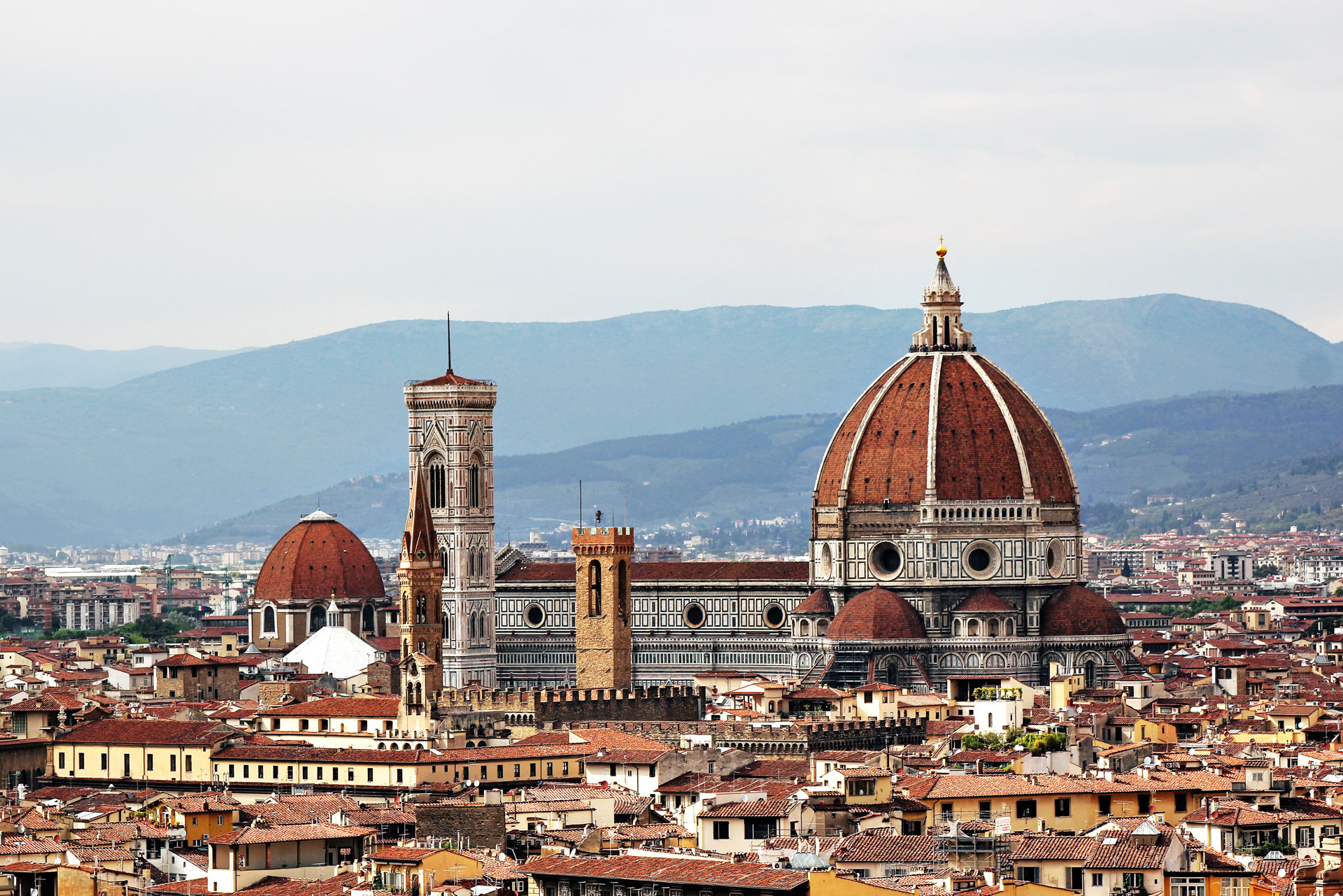
- HOME
- CULTURE
Florence’s Post-Covid Renaissance
A new era of cultural tourism in Florence
By | 4 years ago
Kamin Mohammadi looks at how the coronavirus crisis has changed the cultural landscape of Florence, starting with the symbolic ReGeneration festival
It is the day before Ferragosto – the mid-August date when all of Italy closes for holidays – and I am standing outside one of Florence’s most splendid private palaces, having my temperature checked and changing my shoes. My mask is firmly in place, in spite of the infernal 40˚ heat of the day. I submit willingly in order to be able to attend indoor rehearsals for the ReGeneration Festival, as glad as the organisers, musicians, singers and crew gathered here from all over Europe to see one of the world’s hardest-hit sectors working again.
The C&TH Guide to the Glyndebourne Festival
The annual festival, which has been showcasing the talents of young musicians since 2017, is organised by three young Brits who love Florence: Maximilian Fane, Roger Granville and Frankie Parham, producers of the New Generation Festival, who this year have teamed up with the Uffizi Galleries to present the festival at the magnificent Pitti Palace’s Boboli Gardens. The city can enjoy opera, classical music, jazz and more by young artists from 26–29 August in the formal gardens that were the model for Versailles.
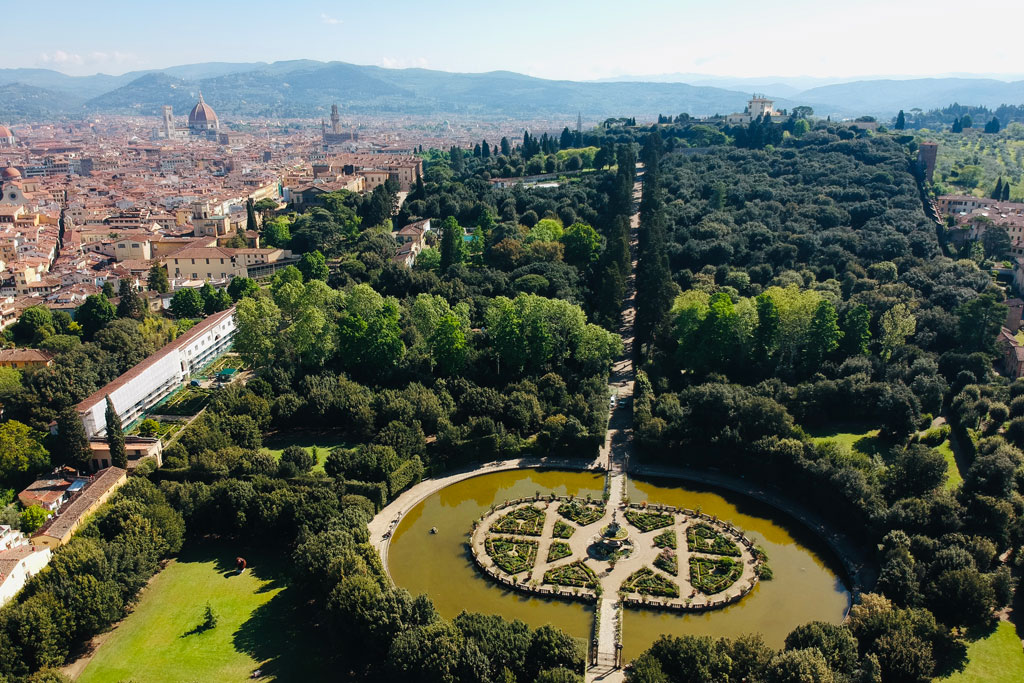
The Boboli Gardens
As well as the Uffizi and the city administration, the festival has some high profile sponsors. In fact, so successful has the funding been that tickets will be free this year (last year they ranged from €35 to €250), and a charitable foundation has been set up to help those artists, creatives and local businesses who have been affected by the pandemic. The festival will be live streamed on the Uffizi’s Youtube channel.
It is the latest example of the sort of flexibility and cooperation between the city’s institutions and its inhabitants (including the well-established international community) that is making this summer in Florence one of the most magical in years.
Just three months ago in May, as Florence emerged cautiously from lockdown, it was difficult to imagine how the Renaissance city might recover. Nearly three months of one of the toughest lockdowns in Europe had left Florence deserted, bereft of its visitors, its glorious cultural institutions shuttered, and its people skint. Since the COVID-19 emergency when even parks were closed and any attempt to leave the house needed self-certification, the eerie quiet of the historical centre of Florence has haunted the city’s residents and its administration.
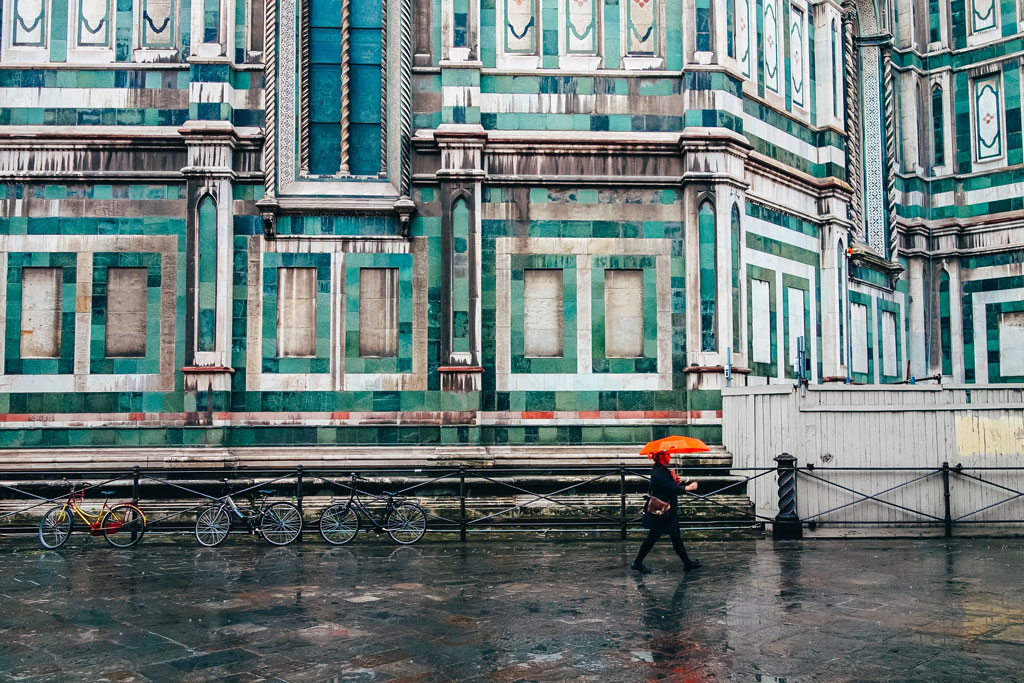
Photo: Tolga Kilinc
The unchecked hypertourism of the past years plus the dominion of AirB&B has depopulated the centre to such a degree that under lockdown, there were barely any essential shops left that could open and hardly any residents in the historic heart of the city. The haunting images of the mayor Dario Nardella, standing alone in the middle of a deserted Piazza Signoria, head bowed, mask on, commemorating the city’s COVID victims while the flags of Florence and Italy flew at half mast, have left an indelible impression on all who love this city.
Music Festivals in London: What’s Been Cancelled?
Italy was the first country in Europe to be hit by COVID. Between March and May, the situation was terrifying, with thousands infected daily and the healthcare system on the brink of collapse. Italy was also the first country in Europe to impose a national lockdown on its citizens, restrictions so severe that the virus was under enough control to start a phased reopening in May.
Of all of Italy’s hard-hit cities, tourist hotspots such as Florence have particularly suffered. Tourism represented around 13% of Italian GDP in 2019, with Tuscany accounting for nearly 15% of all foreign arrivals into the country. With European, international and even regional borders still closed in mid-May, the city started slowly to come back to life, and, in spite of the sadness of seeing so many places closed – an estimated 40% of small business did not reopen after lockdown – there was unexpected delight in seeing Florence’s historic streets being reclaimed by the locals.
Families could be seen slowly riding their bikes together on the Ponte Vecchio while older residents marvelled at how it was like going back in time to the Florence of the 1970s. While the world was locked out and we had Florence all to ourselves, a sort of mass awakening took place, a realisation by locals and the city administration alike that the past model of tourism was not only untenable and unsustainable, it was actively killing the city, threatening to turn Florence into a theme-park version of itself, populated only by tourists and those servicing the industry.
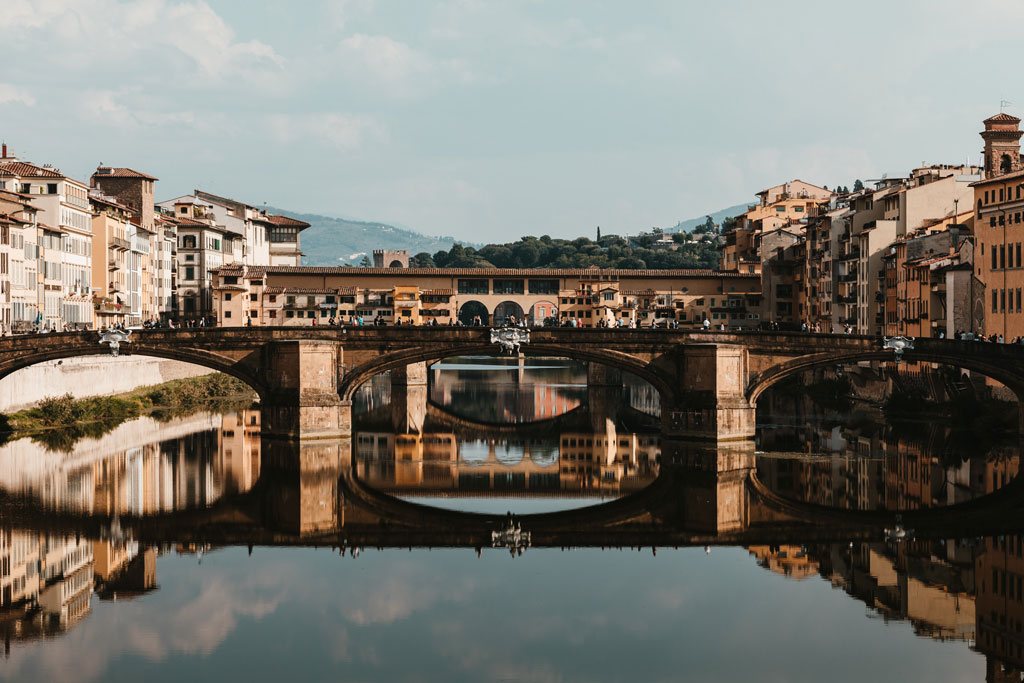
Photo: Bence Boros
A plan was made by the mayor, complete with its own hashtag – #rinascefirenze (#florencerenaissance) – to hold public consultation on the future of Florence with residents, cultural institutions, touristic industries and employment unions. ‘Florence has reawakened from the slumber of the pandemic like a beautiful animal,’ said mayor Nardella at the end of May, a few days before Italy’s regional and national borders were about to reopen. ‘The current phase has made us realise just how fragile the tourism model we’ve developed over the years actually is in terms of the city’s economy. That’s why we need to… encourage more informed, responsible and sustainable tourism that’s less fleeting.’
At the forefront of this new, slow approach to tourism is the city’s best-known museum, the Uffizi Galleries. During lockdown, the Uffizi put its exhibitions online, offering daily tours of its treasures, receiving over 350,000 visitors to its online portals, and yet still suffered losses of €12 million during the 85 days it was closed. The Uffizi, home to some of the world’s most famous art works such as Botticelli’s Venus, was one of the world’ first cultural institutions to reopen its doors, opening various galleries and gardens in phases, assessing the impact of each phase while slowly increasing its hours to full opening.
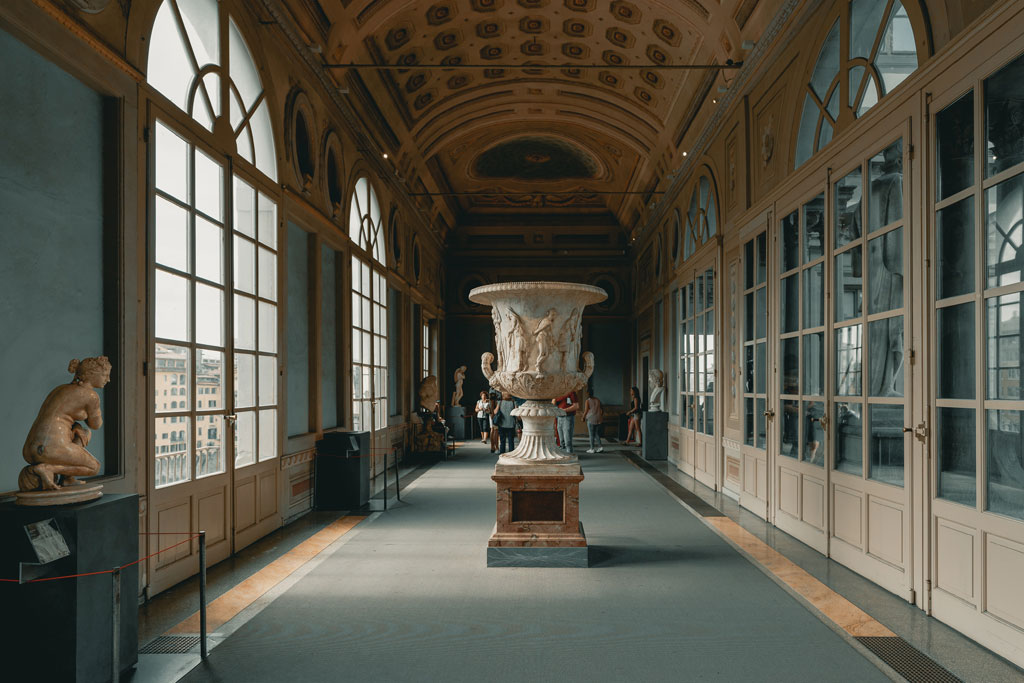
Photo: Clay Banks
It has dramatically reduced daily visitor numbers, limited tour groups to max 10 people and made booking advance tickets mandatory. Temperatures are taken on entrance and masks must be worn at all times. Special passes that include the Boboli Gardens and the museum complex of the Pitti Palace are now available for five days, to encourage slow tourism. Initiatives to bring younger audiences to the Uffizi have been so successful that the numbers of visitors under the age of 25 has also increased by 27%.
It is once more a joy to visit the Uffizi, where you can sit and pause in front of paintings without being run down by groups of 30 selfie-stick-wielding tourists. Eike Schmidt, the Uffizi’s director, states: ‘It would be wonderful if the model of relaxed tourism that we are experimenting at the Uffizi in this particular historical moment becomes the model for tourism in the future.’
Creativity, collaboration and cooperation have characterised this summer in Florence. Famous restaurants stage pop-ups on the rooftops of hotels, charming summer garden spaces have mushroomed all over town, museums such as Santa Maria Novella and Villa Bardini have a roster of open-air films in their gardens and cloisters. Nearby Tuscan wine estates such as Colognole are providing jazz and wine tasting evenings in the open air, while hilltop resorts like Villa Medicea di Lilliano are offering outdoor cinema nights under the stars. It makes a refreshing change that all this is aimed first and foremost at locals, for the many who can not afford or dare to holiday abroad and Florence’s international community that is mostly unable to visit home countries.
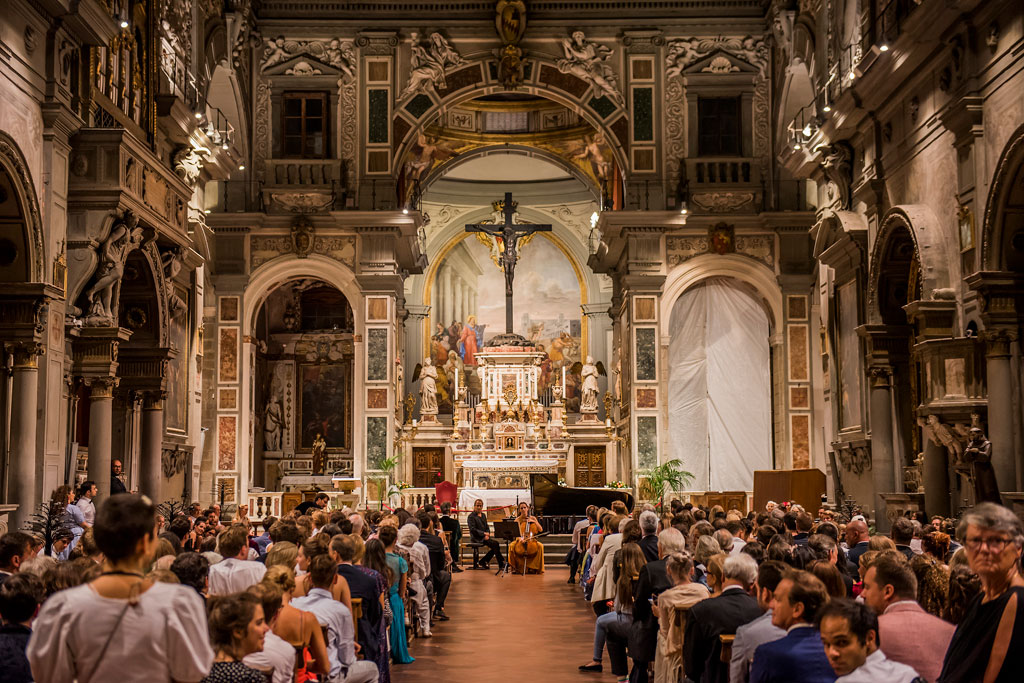
Italy and Tuscany are keeping a significant resurgence in cases at bay. The city administration has remained agile in its response to the virus by setting new rules as needed – there are COVID testing stations every weekend evening in piazza Santo Spirito where hoards of young people congregate, and along Tuscany’s coast too, while just this weekend, masks have been made mandatory outdoors at night in Tuscany again. This, alongside with mandatory testing of every Tuscan resident who returns from abroad this summer, is keeping Florence safe.
This August, tourism has returned to Florence, but it is an altogether gentler form than the overwhelming invasion of the past years. The resurgence of Italian visitors has already had a beneficial effect on the menus of city-centre restaurants. Hotels, which have rigorous COVID protocols, are clawing back some of their business from the self-catering app giant, good news for the city which relies on the nightly €2 tourist tax which AirB&B does not pay, depriving the city of millions of euros which directly fund many of its cultural and academic institutions. There is a palpable feeling of relief as some of the losses of the lockdown are recovered. The City Hall continues its public consultation on the future of Florence, prioritising making the city liveable for its residents.
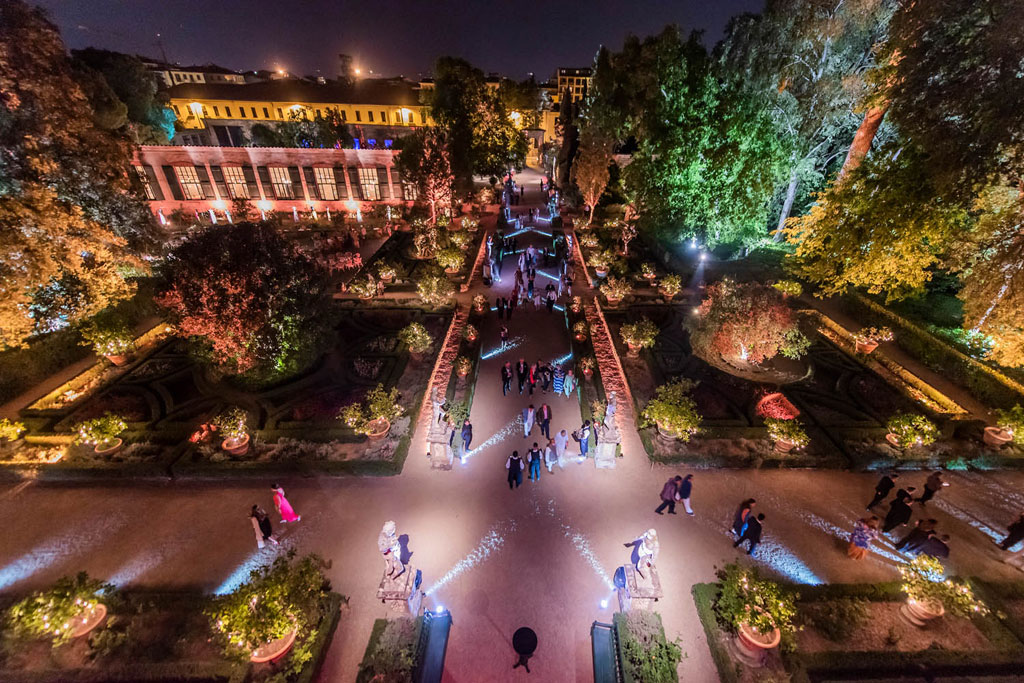
Roger Granville sums it up: ‘The ReGeneration Festival at the Boboli Gardens all for free is a symbolic event that shows what is possible with creativity, collaboration and flexibility. It demonstrates the restorative power of the arts, showing that the arts are not just essential for the soul but also an inherent part of the economy.’
With tourism in Italy not expected to fully recover until 2023, the post-COVID renaissance of Florence points the way to the future: a more sustainable, slow, and culturally led form of travel which enriches both the visitor and the visited alike.
The ReGeneration Festival
26–29 August 2020; tickets available for free at newgenerationfestival.org or uffizi.it
Email: [email protected] for waiting list
Art History Abroad is one of the festival’s sponsors and is offering a 4-day art and music trip to Florence which includes the best seats for every night of the ReGenerantion Festival.
READ MORE
48 Hours in Florence: The Weekender / Re-Discovering Tuscany



